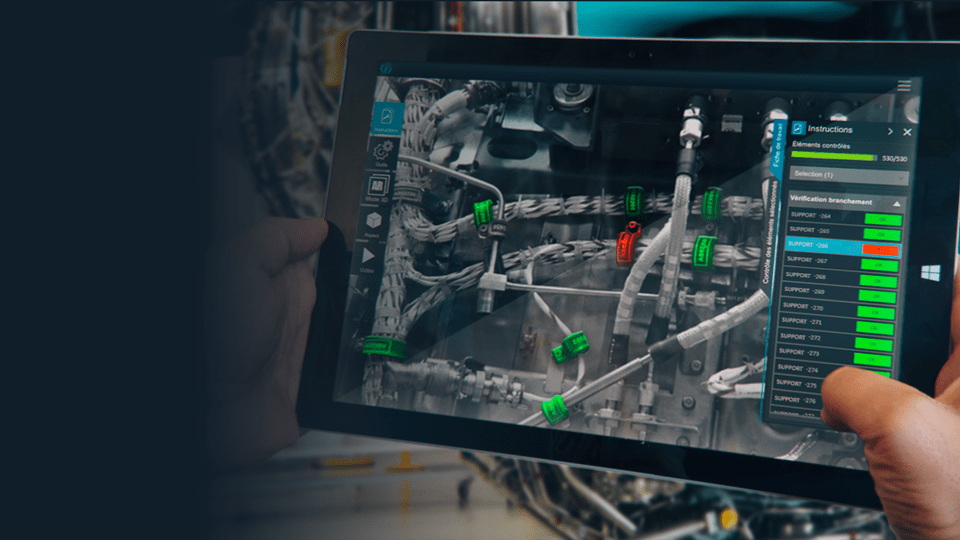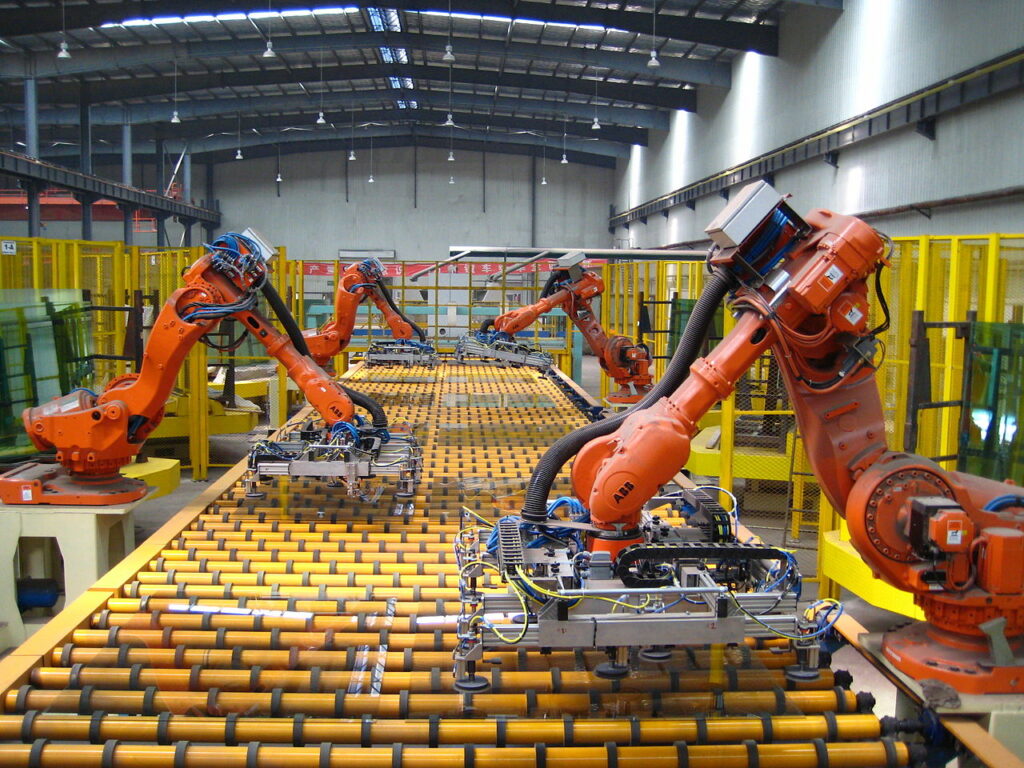PRESS RELEASE
Unlocking the Future of Manufacturing:
Sustainability, Decentralization and Industry 5.0
Manufacturing is evolving towards more decentralized, sustainable, and human-centric models, driven by technological innovation and the need to address challenges like climate change and resource scarcity.
Navigating The Future of Manufacturing
In today’s rapidly shifting industrial landscape, manufacturing is undergoing a transformation that merges technological innovation with sustainability. As businesses and nations adapt to pressing challenges, including climate change, resource scarcity, and economic resilience, manufacturing processes are evolving towards more decentralized, sustainable, and human-centric models. This shift is driving profound changes in how products are designed, produced, and distributed, offering exciting opportunities for businesses looking to stay ahead.
Decentralized Manufacturing: A New Industrial Paradigm
The advent of decentralized manufacturing is fundamentally altering the traditional production model. Rather than relying on centralized, large-scale factories, this approach empowers local and regional manufacturing networks to produce goods closer to the point of consumption.
The advantages expected from decentralized manufacturing are an increased flexibility, supply chain resilience, reduced Transportation Costs and Emissions, faster Lead Times and sustainability as decentralized systems can support circular economy practices by making it easier to recycle, remanufacture, and reuse materials locally.
According to a study by Deloitte in 2024, 86% of manufacturers believe that decentralized manufacturing will be essential for improving supply chain resilience and a main driver of competitiveness by 2030.
However, some challenges remain that still need to be addressed.
- Coordination Complexity: Managing production across multiple sites requires advanced digital tools to ensure efficient communication, resource allocation, and scheduling.
- Quality Control: Ensuring consistent quality and standards across geographically dispersed facilities can be difficult, particularly when different suppliers or processes are involved.
- Supply Chain Fragmentation: Decentralized systems often involve multiple suppliers, making it harder to synchronize production flows and manage inventory efficiently.
- Capital Investment: Setting up and maintaining multiple smaller facilities may require significant upfront investment, which can be a barrier for smaller companies.
- Technology Integration: Advanced technologies like cloud computing, automation, and real-time data tracking are essential for decentralized manufacturing, but not all companies are equipped to implement them effectively.
Despite this challenges, key industry players such as Schneider Electric are already pioneering this decentralized approach with their automation-focused factories. Their highly automated plants exemplify how decentralization can lead to increased operational efficiency while integrating sustainable practices. Decentralized manufacturing also enables greater customization and responsiveness to market needs, creating a more flexible and resilient production ecosystem.
Private investors are also recognizing the importance of this shift. Firms like Matterwave Ventures are actively supporting the development of technologies that enable decentralized manufacturing and enhance industrial sovereignty. By fostering startups that promote local production capabilities, they are contributing to a more resilient industrial base.
Manufacturing as a Service (MaaS): Overcoming Barriers to Decentralized Manufacturing
Manufacturing as a Service (MaaS) is a transformative concept that brings the benefits of the service industry to manufacturing. Through MaaS, companies can access manufacturing resources on-demand, just as cloud computing provides scalable digital services. However, despite its transformative potential, several technical and structural barriers have prevented the widespread deployment of MaaS and decentralized manufacturing.

One of the most significant barriers is the lack of integrated supply chain management across decentralized manufacturing networks. In current MaaS models, manufacturers and customers interact through digital marketplaces. While this is suitable for basic services like 3D printing or CNC machining, these platforms struggle with more complex manufacturing processes that require coordination between multiple suppliers. For instance, in sectors such as electronics or industrial machinery, producing a single product can involve several specialized manufacturers. Existing MaaS platforms are not designed to manage the intricate data sharing, inventory management, and scheduling needed to synchronize such distributed production.
Another major challenge is the limited transparency and resource sharing capabilities in today’s MaaS offerings. Many platforms operate on a “black box” model, where customers are not aware of who the suppliers are or how production is being handled. This model works well for straightforward, low-risk orders but falls short when dealing with complex or highly regulated industries like aerospace or automotive, where traceability and quality control are crucial. The current lack of transparency also makes it difficult to integrate decentralized production chains into a cohesive workflow that ensures consistency in output and delivery.
The fragmentation of digital tools further complicates the adoption of decentralized manufacturing. While many MaaS platforms have incorporated cloud-based technologies, these systems are often not advanced enough to enable real-time collaboration between multiple factories. This results in inefficiencies such as delays in communication, unsynchronized production timelines, and missed opportunities for optimizing resource use. Without a unified infrastructure that allows for seamless data exchange and coordinated production, decentralized manufacturing cannot reach its full potential.
Circularity: Building Sustainable Industrial Ecosystems
One of the most compelling arguments for decentralized manufacturing is its support of circular economy principles. Circularity involves designing products with longevity, repairability, and recyclability in mind, reducing resource consumption and minimizing waste. This stands in contrast to the traditional linear “take, make, dispose” model, which is increasingly unsustainable.
In the EU, it is estimated that switching to a genuine circular economy would contribute to reduce greenhouse gas emissions by 37%. Despite the benefit of circularity gaining more and more attention, the Circularity Gap report 2024 states that “the vast majority of extracted materials entering the economy are virgin, with the share of secondary materials declining steadily since the Circularity Gap Report began measuring it: from 9.1% in 2018 to 7.2% just five years later in 2023.” (CGR Global 2024 – Executive Summary.pdf (europa.eu))
Decentralized manufacturing aligns with circularity by enabling localized production that can quickly adapt to changes in demand and resource availability. Localized networks are better suited to handle recycling and remanufacturing, as they can close the loop on resource use by processing and reintroducing materials into the supply chain.
For instance, companies adopting circular principles can design products to last longer, establish systems for repair and recycling, and even remanufacture old parts. By integrating circularity into decentralized manufacturing models, businesses not only reduce their environmental impact but also create more resilient and adaptable production systems.
Reducing the Carbon Footprint through Decentralized Manufacturing and Circularity

Reducing the carbon footprint is a top priority for manufacturers globally. The International Energy Agency reminds us that the industry sector in 2022 was directly responsible for emitting 9.0 Gt of CO2, accounting for a quarter of global energy system CO2 emissions. (Tracking Clean Energy Progress 2023 – Analysis – IEA)
Adopting circular economy principles within decentralized manufacturing systems allows companies to optimize resource use while minimizing waste. By reducing the need for long-distance transportation and producing goods locally, decentralized manufacturing significantly lowers emissions. Furthermore, circularity encourages the reuse and recycling of materials, extending product life cycles and reducing the need for new raw materials.
The synergy between decentralized manufacturing and circularity offers a powerful solution for industries seeking to reduce their environmental footprint and meet global climate goals.
Strengthening Industrial Sovereignty and Sustainability
Industrial sovereignty is becoming a key issue as nations strive to retain control over critical supply chains, particularly in times of geopolitical instability. Decentralized manufacturing plays a crucial role in this effort, as it allows for the development of local production ecosystems that reduce dependence on foreign suppliers and create economic resilience.
According to an estimation from the EC, thanks to decarbonization, EU’s energy import dependance could be significantly reduced, from 54% in 2022 to 20% by 2050. (European Commission, Industry 5.0, a transformative vision for Europe – Governing systemic transformations towards a sustainable industry, Publications Office of the European Union, 2021)
By fostering sovereignty in manufacturing, companies can mitigate risks and ensure the security of their operations. This approach is gaining traction not only among businesses but also within the investment community. Investors are actively focusing on solutions that empower local production and reduce reliance on external supply chains, helping businesses secure their operations in volatile global markets.
Industry 5.0: The Future of Human-Centric Manufacturing
While Industry 4.0 focused on the integration of automation and data exchange, Industry 5.0 introduces a more human-centric approach to manufacturing. Rather than merely replacing human labor with machines, Industry 5.0 emphasizes the collaboration between humans and advanced technologies such as AI and robotics to enhance worker roles, improve safety, and increase efficiency.
Startups like Follow Inspiration and Spin Robotics are enabling decentralized manufacturing by making robotic solutions accessible to smaller manufacturers, promoting efficiency, sustainability, and worker safety through human-centric automation. Their innovations embody Industry 5.0’s focus on empowering the workforce while reducing physical strain and improving workplace safety.
Navigating the Future of Manufacturing
The future of manufacturing is one where decentralization, sustainability, and worker empowerment are intertwined. By embracing these principles, industries can reduce their carbon footprints, strengthen sovereignty, and build resilient production ecosystems that are better suited to the challenges of the 21st century. Advanced technologies, such as AI, robotics, and cloud-based systems, are not just driving efficiency but also empowering workers and making manufacturing more sustainable.
For businesses looking to navigate these transformations and align their production models with the principles of Industry 5.0, circularity, and decentralized manufacturing, collaboration is key. The integration of these trends will shape the future of industrial progress, offering not only economic advantages but also a path towards a more sustainable, human-centered industrial landscape.
If you’re interested in how these trends can transform your business, contact Blumorpho’s experts today. We can provide insights into the latest funding opportunities and help you align your manufacturing strategy with the critical challenges of climate change and economic growth. Combining technological innovation with sustainability is more than a necessity—it’s an opportunity. Reach out to explore how we can support your journey towards a more decentralized, circular, and sovereign manufacturing ecosystem.
Contact
Regis Hamelin
hamelin@blumorpho.com
https://blumorpho.com
